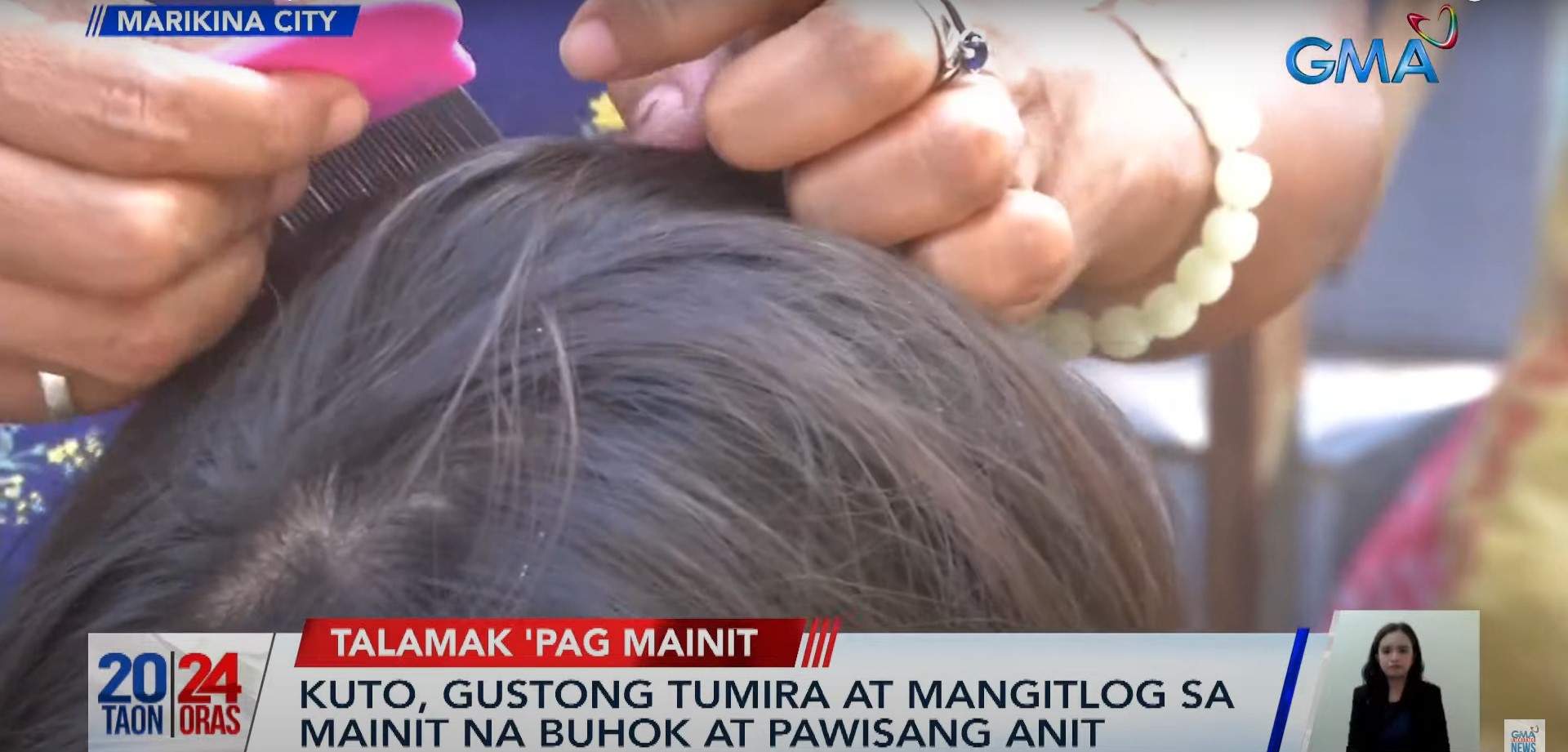DOH warns public against lice infestation this summer
Published April 2, 2024 7:42pm With the hotter summer, lice has reared its ugly head. Here are tips to avoid these pesky pests in a 24 Oras report by Mark Salazar. With her child’s hair as the battlefield, a mother in Marikina is in an ongoing battle against lice infestation. “Lagi nga kami nag-aaway niyan […]


With the hotter summer, lice has reared its ugly head. Here are tips to avoid these pesky pests in a 24 Oras report by Mark Salazar.
With her child’s hair as the battlefield, a mother in Marikina is in an ongoing battle against lice infestation.
“Lagi nga kami nag-aaway niyan kasi ayaw nga magpakuto nyan eh. Lagi yan ginugupitan buti nga ngayon hindi na gaano,” Rowena said.
Since they live in a small house, the cramped conditions mean Rowena’s family is at greater risk of being infected with lice.
Rowena wonders why she also gets lice despite bathing regularly.
“Kapag katabi ko mga anak ko nagkakaroon pero bilang lang. Hindi kagaya (sa anak ko) na marami,” she said.
According to the Department of Health (DOH), bathing is not as much of a factor in preventing lice when compared to borrowing other people’s clothes and accessories.
“Kahit mga naliligo araw araw maari pa ring magkakuto. Pero kung may kuto ang isang tao dapat hindi siya nakikipag hiraman ng suklay, sumbrero et cetera. Pati punda ng unan pwede ka mahawa,” explained DOH Undersecretary Eric Tayag.
(Bathing regularly will not prevent you from being infected. If a person has lice he or she must not borrow or lend brushes, hats and even pillows.)
The DOH said lice outbreaks are associated to warm weather since lice prefer to live and hatch eggs on hot hair and sweaty scalps.
Lice also spread faster thru kids playing and summer bonding activities such as swimming.
This is why the Research Institute for Tropical Medicine observed children three to 12 years old is the most common age group prone to lice infestation.
Despite its constant and annoying presence, the Center for Disease Control of America said lice are not disease carriers which is why these are not considered as public health hazards.
Fortunately, pets such as cats and dogs cannot get lice from humans.
Dermatologists can also recommend medicine against lice.
It is also advised to regularly wash clothes, beddings and towels to prevent lice from living in their fabrics.—RF, GMA Integrated News














